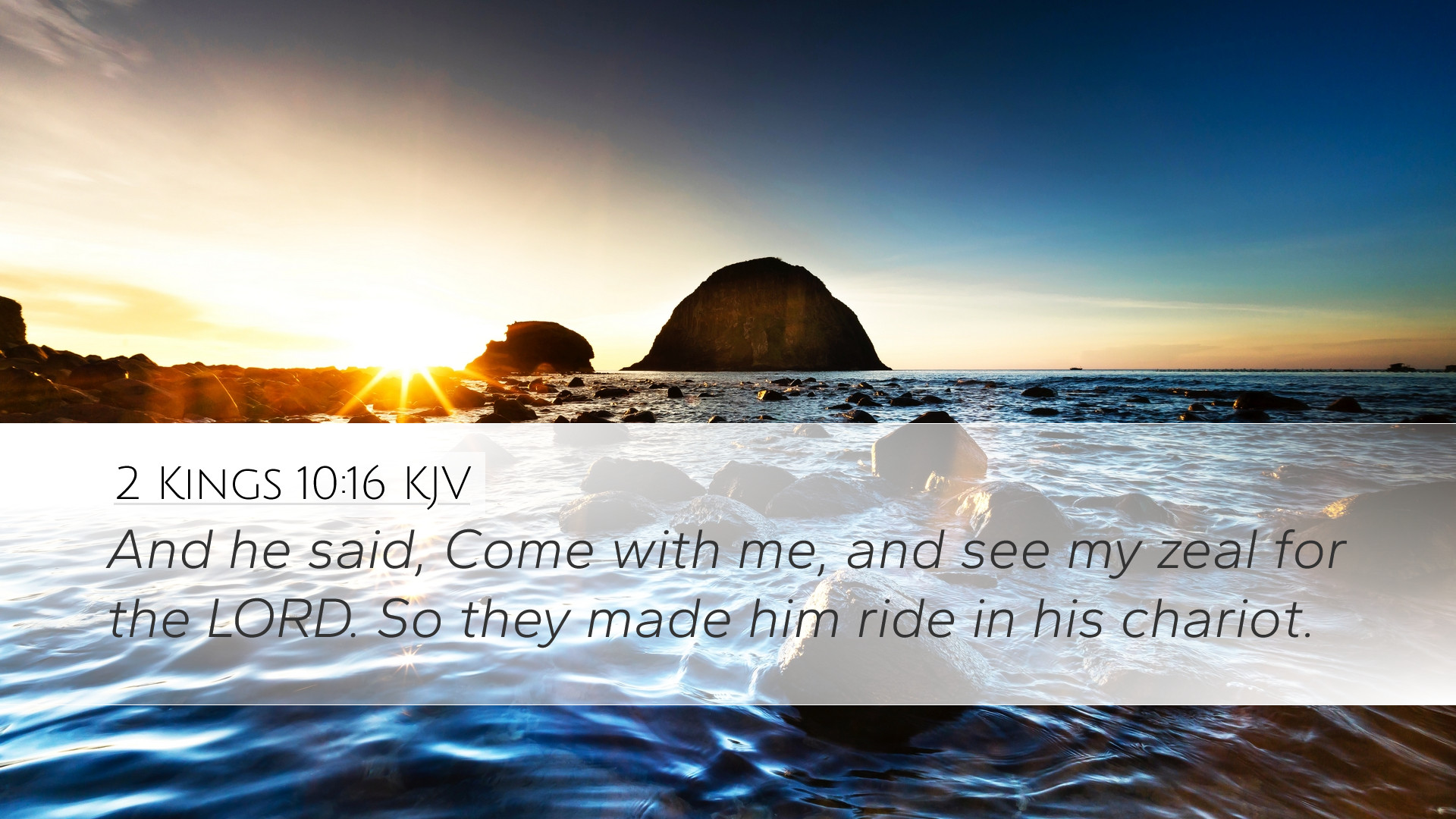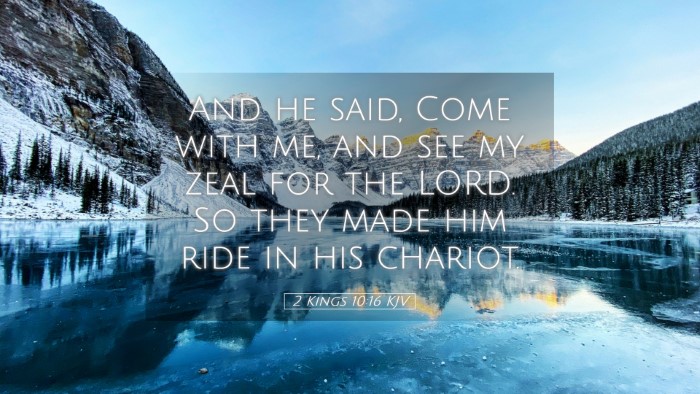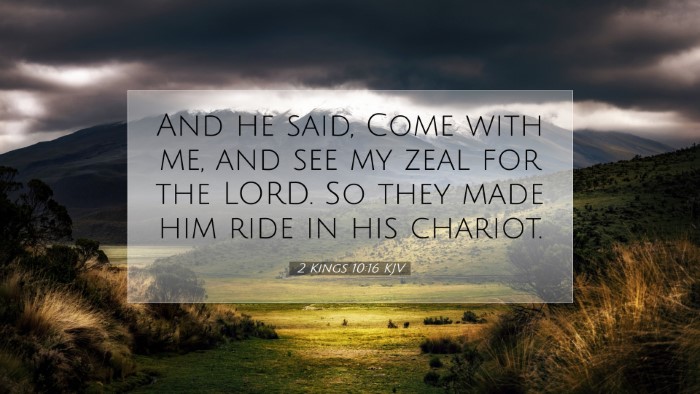Commentary on 2 Kings 10:16
Verse: “And he said, Come with me, and see my zeal for the Lord. So they made him ride in his chariot.” (2 Kings 10:16, ESV)
Historical Context
This verse occurs during a pivotal moment in the history of the kingdom of Israel. Jehu had just been anointed king, and his mission was to purge the land of Baal worship and avenge the blood of the prophets. This call to come and see his zeal represents both a literal and symbolic invitation to witness the extent of his commitment to the Lord's directives.
Thematic Insights
- Zeal for the Lord:
Here, Jehu’s zeal underscores an important biblical principle: the fervent pursuit of God’s commands. In light of Albert Barnes' commentary, his passion aligns with those called to lead nations or peoples in accordance to divine will.
- Leadership and Influence:
Jehu’s invitation is an appeal to those around him, showcasing the necessity of collective action in upholding godliness. As Adam Clarke notes, effective leaders inspire others to join in their pursuits, reinforcing unity in purpose.
- Symbolism of the Chariot:
The chariot metaphorically illustrates the power and authority bestowed upon Jehu. Matthew Henry emphasizes that this vehicle signifies both a means of judgment and a divine endorsement of Jehu’s mission.
Commentary Analysis
Jehu’s assertion of zeal invites reflection on what it means to be zealous for the Lord in contemporary settings. The historical figure acts as a figurehead for leaders today who are called to face the challenges of idolatry and moral compromise within their communities.
Matthew Henry's Commentary
Henry notes that Jehu’s zeal was not simply personal passion; rather, it was a divinely inspired urgency to act against the worship of Baal. Zeal for God must translate into tangible action, as evident in the decisive measures Jehu takes following this proclamation. His courage to confront a deeply entrenched cultural practice reminds believers of the call to act with boldness against societal wrongs.
Albert Barnes' Perspective
Barnes highlights that Jehu's invitation to his companions signifies a leadership role that engages and involves others in God’s work. The accompanying climactic actions that follow, including the purge of Baal worshippers, reflect the collective movement driven by one individual’s fervor. The essence of godly leadership is captured in a commitment to show others what true devotion looks like.
Adam Clarke's Insights
Clarke elaborates on the relational aspect of Jehu's proclamation. His reference to zeal invites those around him to partake in his mission, indicating that true leadership should not isolate but rather unify individuals towards a common divine purpose. Clarke emphasizes that the outworking of zeal results in a spiritual awakening and a return to fidelity among God’s people.
Theological Reflections
This verse serves as a clarion call to today’s believers regarding the nature of godly zeal. The theological implications suggest that zeal must be active and communal, drawing others into the passion and pursuits of a righteous life.
It raises questions about how modern followers of Christ might similarly invite their community to witness and participate in acts that reflect a commitment to God's ways. Are we willing to say, “Come and see my zeal for the Lord” in our individual contexts?
Application for Pastors and Theologians
- Passion in Ministry:
Pastors are encouraged to embody a zeal that is palpable within their congregations, leading them to pursue holiness and righteousness actively.
- Training Leaders:
The verse serves as a model for training emerging leaders within the church. A leader who is open about their zeal invites mentorship and discipleship opportunities to foster spiritual growth.
- Cultivating Community:
The focus on collective engagement speaks to the essence of church life where each member’s involvement is essential in community health and worship.
Conclusion
In summation, 2 Kings 10:16 encapsulates the essence of effective leadership grounded in a fervent commitment to God. Jehu invites us to examine our own zeal and how it is manifested in our lives and community. Through insights from established commentaries, we are reminded of the call to not only pursue zeal personally but to extend an invitation for others to join in this vital act of collective worship and righteousness.


